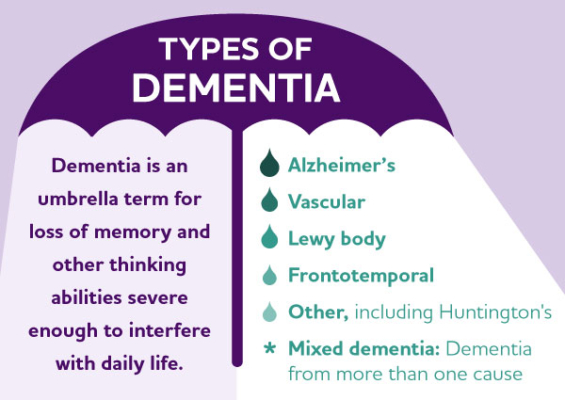Memory Care
5 Tips for Visiting a Senior Living Community
Click to Read More

Helping you better-understand and navigate a dementia diagnosis.
When you are experiencing Alzheimer’s or other forms of dementia in your life there are often more questions than answers. While there are many paths that you can follow, we would like to be a resource to help you not only understand what you or your loved one is going through, but to also help narrow things down to a point where you have a better understanding of what you need to do next.
Please feel free to peruse these materials at your leisure. Should you have any questions we are here to answer in-person or virtually – whatever makes you most comfortable.

“Dementia is not a single disease; it’s an overall term — like heart disease — that covers a wide range of specific medical conditions, including Alzheimer’s disease. Disorders grouped under the general term ‘dementia’ are caused by abnormal brain changes. These changes trigger a decline in thinking skills, also known as cognitive abilities, severe enough to impair daily life and independent function. They also affect behavior, feelings and relationships.
Alzheimer’s disease accounts for 60-80% of cases. Vascular dementia, which occurs because of microscopic bleeding and blood vessel blockage in the brain, is the second most common cause of dementia. Those who experience the brain changes of multiple types of dementia simultaneously have mixed dementia. There are many other conditions that can cause symptoms of dementia, including some that are reversible, such as thyroid problems and vitamin deficiencies.
Dementia is often incorrectly referred to as ‘senility’ or ‘senile dementia,’ which reflects the formerly widespread but incorrect belief that serious mental decline is a normal part of aging.”
— For further information, visit the Alzheimer’s Association website.
Select your subject matter from the list on the left.
Amber Evans, our Vice President of Memory Care and Resident Engagement, has been named the Vice Chair of Education and Outreach for the National Institute for Dementia Education’s Standard of Excellence Council. Amber was recognized by NIDE for her remarkable contributions to dementia education and service and will now be a leader within the council, influencing dementia education standards and policies across the country.